Not an inch of Ukrainian land. How Stalin defined the borders of Poland
Surprisingly, not the leaders of the Soviet Union, not the British with the Americans, or even the French, but the Poles - representatives of the Polish government in exile, who settled in London after the complete defeat of Poland and ceased to exist as an independent state, were the first to speak about the post-war division of European borders. Although Poland suffered a swift and shameful defeat from Hitler Germany, Polish politicians had the audacity not only to talk about the future of post-war Europe, but also to claim a crucial role in the division of borders. The Poles even formed a special commission for post-war reconstruction, which was headed by Marian Seyda.
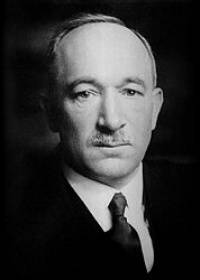
In the autumn of 1942, the Polish commission drafted a special document - a report on the political structure of Europe after the defeat of Nazi Germany. However, he fell into the hands of Edward Benes (pictured) - the president of Czechoslovakia, who led the Czechoslovak exile government, also in London. As a matter of fact, the Poles themselves handed Benesh the document, having made a fatal mistake. After all, Benesh had his own accounts for Poland - it was Warsaw, together with Berlin and Budapest, who participated in the criminal conspiracy to destroy the Czechoslovak statehood and the division of Czechoslovakia between Germany, Poland and Hungary. Edward Benesh summoned Ivan Andreevich Chichayev to his office - a representative of Soviet intelligence in London, who was officially the adviser of the authorized representative of the USSR.
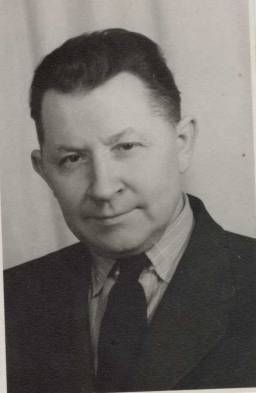 The Czechoslovak president gave Chichaev (pictured) a report of the Polish commission and warned that this document reflects the point of view of Polish political circles in London and connected with the British leadership on the possible division of post-war Europe and on the role of Poland in this section. Of course, the document was passed in strict secrecy. 28 December 1942 of the USSR State Security Committee Commissar Lavrenty Pavlovich Beria reported to Joseph Vissarionovich Stalin about the report of the Polish commission, which fell into the hands of Soviet resident Ivan Chichayev through Benesh. So began story Soviet opposition to Poland’s plans for postwar Europe.
The Czechoslovak president gave Chichaev (pictured) a report of the Polish commission and warned that this document reflects the point of view of Polish political circles in London and connected with the British leadership on the possible division of post-war Europe and on the role of Poland in this section. Of course, the document was passed in strict secrecy. 28 December 1942 of the USSR State Security Committee Commissar Lavrenty Pavlovich Beria reported to Joseph Vissarionovich Stalin about the report of the Polish commission, which fell into the hands of Soviet resident Ivan Chichayev through Benesh. So began story Soviet opposition to Poland’s plans for postwar Europe. Analysis of the Polish document showed that Poland did not abandon the revanchist plans and was not going to admit even the slightest part of its guilt in its own defeat. Naturally, the Polish government in exile tried to find the guilty wherever possible, except for the Polish elite itself. First of all, the blame for the defeat of Poland in World War II was laid on ... the countries that won the First World War. Meanwhile, it was thanks to their victory that Poland became an independent state. However, as is well known, almost immediately after Poland “fled” a little, it began to make territorial claims against other, neighboring states. Poland claimed the lands of Czechoslovakia, Germany, Lithuania and, of course, Ukraine and Belarus.
Getting acquainted with the document, the Soviet leader Joseph Stalin was amazed by the content of that section, which spoke about the future of post-war Germany. Here the Russophobia of the Polish government in exile, along with chauvinism, manifested itself most clearly. After the war, it was stated in the document, the territory of Germany should be occupied in the west by the countries participating in the anti-Hitler coalition (USA and Great Britain), in the east by countries bordering Germany, i.e. - Czechoslovakia and Poland. Joseph Stalin left on the margins of a strange report a brief but capacious note - “And the USSR?”. But the Polish government in exile did not want to let the Soviet Union into Germany. This war could have been won in the lives of Soviet soldiers and officers, ordinary Soviet citizens, but to allow the Soviet Union to post-war Europe was not, by any means.
The members of the Polish commission emphasized that Poland, as the country first attacked by Hitler's Germany, should be granted special privileges in the post-war settlement. Firstly, the Polish commission introduced into the report the demands of impressive reparations against Germany. The defeated country had to completely abandon its own land, naval and air forces, and eliminate all armament or transfer to the victor countries. Significant areas of East Germany were to be transferred to Poland.
After the war, the German side had to not only restore all the destroyed and damaged Polish infrastructure, but also provide Poland with all (!) German industrial enterprises, most of the railway, sea and air equipment, a large amount of building materials. Of course, the Polish side was counting on the return of all cultural and material values that were exported to Germany from the territory of Poland.
The commission gathered to expand Poland’s borders not only at the expense of Germany, but also at the expense of (attention!) The Soviet Union. Yes, it was the country that made the most significant contribution to the war with Hitler Germany, who had to give Poland their lands. The document provided for the restoration of the Polish borders in the east in accordance with the state before 1939. In fact, this meant the requirement of transferring lands of Western Ukraine and Western Belarus to Poland after the war, as well as parts of the territory of Lithuania, which in 1939-1940. became part of the Soviet Union.
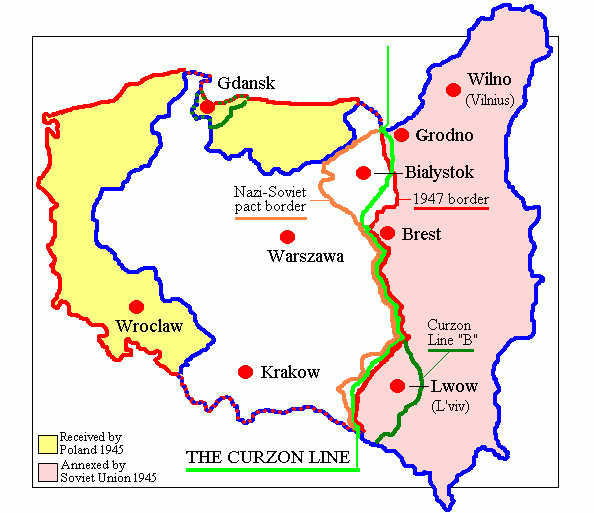
Of course, at the end of 1942, the Polish government, who was hiding in London, did not dare to openly complain to the Soviet Union, and even in an ultimatum. But in the report it did not fail to emphasize that the basis of "friendly cooperation" between Poland and the Soviet Union in the future should be "complete equality", mutual recognition of each other as "great nations with their own spheres of influence." What does this mean? Of course, it was meant that Western Ukraine and Western Belarus, as well as Lithuania, are natural and legal spheres of influence of the Polish state, "occupied" by the Soviet Union in September 1939.
The report directly argued that these lands never belonged to Russia, except for a short time when they were conquered by the Russians, and then by the Soviet troops. Attention was drawn to the fact that Poland for centuries sought to develop these lands, planting Christianity on them (in the Catholic version), Polish knights died here. Therefore, the Polish government in exile believed that the division of land between Poland and the Soviet Union should be made by returning to the Riga Treaty of March 25 of 1921. Only a return to the Treaty of Riga can become the basis for future friendly relations between Poland and the Soviet Union, the document emphasized.
Naturally, Stalin would not have been Stalin if he had agreed to territorial concessions to Poland. However, he didn’t use so much the “victor’s right” as a brilliant move - the Soviet Union agreed with Poland’s territorial claims on Germany in exchange for Poland’s refusal of claims to the USSR regarding the territories included in the Soviet Union in 1939-1940.
November 28 - December 1 The 1943 of Tehran met with the leaders of the states that play a crucial role in the anti-Hitler coalition - Joseph Stalin, Winston Churchill and Franklin Roosevelt. Among the issues discussed by the leaders of the world powers, of course, was the post-war structure of Europe, including the borders of Poland. Both the American President and the British Prime Minister were forced to accept Stalin’s proposals on how he sees the borders of Poland after the victory over Germany.
Shortly after the conference ended, in January 1944, Winston Churchill announced the decision of the leaders of the three great powers to the head of the Polish government in exile, Stanislav Mikolajczyk.
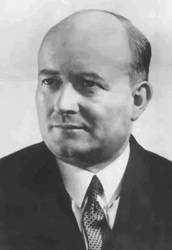 According to the Soviet position, the eastern border of Poland after the war was to be held along the Curzon line. At the same time, the British Prime Minister drew the attention of the Polish representative to the fact that the Polish government has virtually no other option than to agree with the position of the Soviet side. However, the Polish government in exile continued to intrigue, trying to bargain for more favorable conditions for themselves. This only led to the fact that on July 26 of the year, the Soviet Union officially recognized the Polish National Committee for National Liberation, which was headed by the representative of the Polish Socialist Party, Edward Osubka-Moravsky, as the legal authority in the liberated regions of Poland. Now the Soviet Union received an alternative Polish political institute to the London government of Poland in exile, with which it was possible to conduct further discussions on Poland’s postwar borders.
According to the Soviet position, the eastern border of Poland after the war was to be held along the Curzon line. At the same time, the British Prime Minister drew the attention of the Polish representative to the fact that the Polish government has virtually no other option than to agree with the position of the Soviet side. However, the Polish government in exile continued to intrigue, trying to bargain for more favorable conditions for themselves. This only led to the fact that on July 26 of the year, the Soviet Union officially recognized the Polish National Committee for National Liberation, which was headed by the representative of the Polish Socialist Party, Edward Osubka-Moravsky, as the legal authority in the liberated regions of Poland. Now the Soviet Union received an alternative Polish political institute to the London government of Poland in exile, with which it was possible to conduct further discussions on Poland’s postwar borders. However, Stanislav Mikolajczyk didn’t want to agree on Churchill’s convictions for a very long time. He still refused to yield to the Soviet side, including in exchange for the German port of Stettin. But Stalin spoke categorically. When it came to the city of Lviv, Stalin cut off: "We do not trade in Ukrainian land." This meant that the Soviet government was not going to make any concessions to the Polish government in exile regarding Lviv, like other territories of Western Ukraine. 27 July 1944 in Moscow, represented by the Polish Committee for National Liberation, Edward Osubka-Moravsky (pictured) and Vyacheslav Mikhailovich Molotov signed an agreement on the Soviet-Polish border, which emphasized that it would pass along the Curzon line.
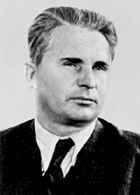 21 April 1945 of the year the Soviet Union signed an agreement with the interim government of Poland, according to which the vast territories in Pomerania and Silesia that belonged to Germany were transferred to Poland - 100 thousand square kilometers. It was a real gift to the Polish government, as the territory of Poland increased by a third. Moreover, Poland received highly developed industrially and rich in natural resources Germanic lands. Thanks to the “gift of Stalin”, Poland received an extensive access to the Baltic Sea, and not the narrow corridor that existed before the 1939 year. In fact, this decision of the Soviet side turned Poland into a state with access to the sea. This radically changed the prospects for the economic development of the country in the very near future.
21 April 1945 of the year the Soviet Union signed an agreement with the interim government of Poland, according to which the vast territories in Pomerania and Silesia that belonged to Germany were transferred to Poland - 100 thousand square kilometers. It was a real gift to the Polish government, as the territory of Poland increased by a third. Moreover, Poland received highly developed industrially and rich in natural resources Germanic lands. Thanks to the “gift of Stalin”, Poland received an extensive access to the Baltic Sea, and not the narrow corridor that existed before the 1939 year. In fact, this decision of the Soviet side turned Poland into a state with access to the sea. This radically changed the prospects for the economic development of the country in the very near future. As for the numerous German population living in the territories annexed to Poland, it was fairly quickly relocated to Germany itself. So the Polish government solved the issue of mono-ethnicity of their country. By the way, so far Poland is one of the few practically mono-ethnic states in Europe. The Germans were evicted to Germany immediately after the annexation of Pomerania and Silesia, part of the Jewish population was destroyed during the occupation of Poland by the Nazis, and the surviving part left Poland after the war, moving to Israel or North America.
At the Yalta Conference, Joseph Stalin again raised the issue of Polish borders, gaining support from Franklin Roosevelt and Winston Churchill. Both leaders of the great powers agreed with Stalin that the lands of Western Ukraine and Western Belarus, inhabited by the Ukrainian and Belarusian population, were to be transferred to the Soviet Union, as they have ethnic and cultural similarities with the Ukrainian SSR and the Belarusian SSR.
The Potsdam Conference of 1945 confirmed the decision of the Tehran Conference and recognized the new borders of Poland. By this time, the government in liberated Poland was already a government in which pro-Soviet politicians played the “main violin”. Edward Osubka-Moravsky, who headed the interim government of Poland, easily made concessions to the Soviet leadership. Nevertheless, some tension remained after the conference. In Poland itself, even after the establishment of communists in power in the country, there still remained revanchist sentiments among many Poles - both ordinary citizens and politicians. Particularly painful they perceived that Lviv, which played a large role in Polish history, was never returned to Poland, but remained in the Ukrainian SSR. After all, until now Poland deduces its continuity from the medieval Polish-Lithuanian Commonwealth and, accordingly, does not give up its claims to Western Ukraine and Western Belarus. Only Stalin, who will say “we are not selling Ukrainian land,” no longer exists, and who knows how the future of these lands will be, especially given the specifics of the modern Ukrainian state.
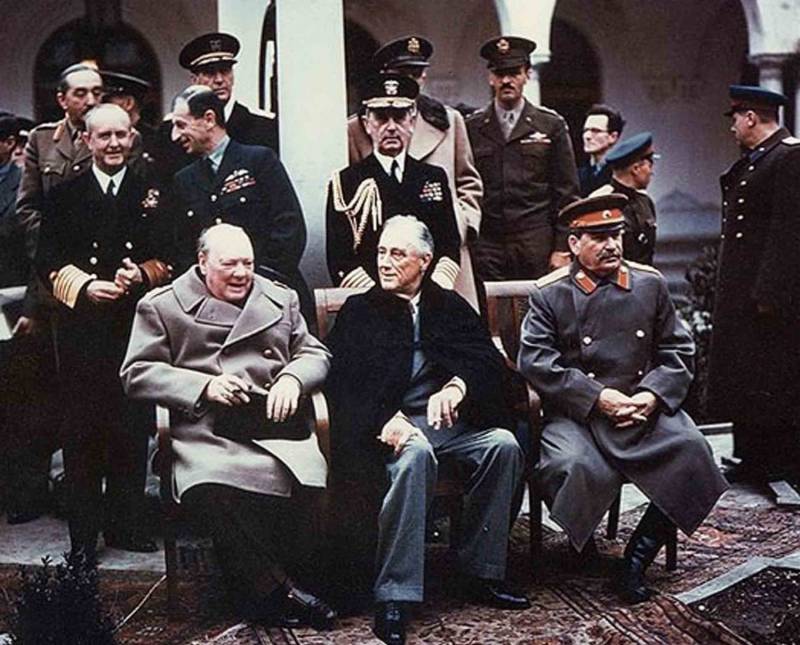
Information